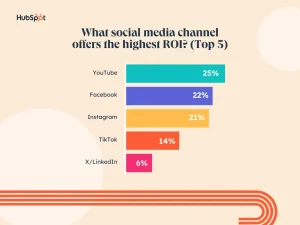
Food scientists and technologists specialize in turning raw agricultural commodities into delicious meals suitable for consumption by consumers. They oversee a complex global food supply network to ensure food safety for us all.
Consumer food tech companies are responding to market-driven demands with innovations like plant-based proteins and novel distribution systems. Industrial food tech companies focus on reducing food waste while improving nutritional, labeling and formulation characteristics.
Ingredient Innovation
Consumers increasingly require food options that are nutritious, convenient and in line with their ethical beliefs. Innovations in ingredient technology can meet this need.
Software solutions are increasingly helping farmers predict crop yields more accurately and ensure quality assurance, while companies use quick response codes to enable consumers to follow their food from farm to table.
One area of food technology seeing significant investment is waste reduction through disintermediation, collective purchasing and other tools. Nilus offers people high-quality food at lower costs by connecting shelters and after school programs in need with businesses with excess food supplies.
Ghost kitchens (sometimes referred to as “cloud”) kitchens are an emerging sector within food tech. Companies providing this service lease commercial kitchens for takeout and delivery restaurants focusing on food takeout and delivery; as the pandemic subsides and consumer spending increases again this sector is expected to experience further expansion.
Vertical Farming
Global population numbers are increasing at an alarming pace and more land must be converted for agriculture – often at the expense of natural habitats and leading to environmental degradation. Vertical farming may offer an efficient solution by producing crops more quickly.
Technology such as this enables producers to grow leafy greens without using soil, and yield higher yields per acre of land than conventional methods can. Production can then be brought closer to urban populations, meaning reduced food miles and greater access to fresh produce for their inhabitants.
Technology can also help food processing and preservation by creating soft foods easier for those with swallowing disorders to eat or by producing healthier ready-made meals for busy consumers. Furthermore, 3D printing enables quicker product development processes than ever before.
Sustainability
Food should be delicious and nutritious while still being good for us, yet more and more people are becoming increasingly conscious about their diets and are using cutting-edge tech like Memphis Meats’ app to eat healthier and ethically.
Many startups are making strides toward combatting food waste by streamlining supply chain processes more transparent and efficient, such as Hazel Technologies which uses sensors to ensure fresh produce quality during transportation – something which is particularly problematic in certain locations.
Companies such as Local Roots Farming are using cutting-edge technologies to cultivate delicious food that we can all enjoy, so our diet remains nutritious. Their sensor systems monitor atmospheric and nutrient conditions; LED lighting that displays specific proton wavelengths; and irrigation technology which uses 99% less water compared with outdoor farming are among their many tools of trade.
Nutrition
Food technology (food tech) has emerged as an emerging movement to meet these goals and bring greater transparency to the food industry.
Food tech includes devices that monitor atmospheric, nutrient, and water conditions; software that improves crop yield prediction and quality assurance; equipment such as hydroponic systems for indoor gardening or automated refrigeration; quick response (QR) codes can also track food products through their journey from source to consumer plate.
Startups operating in this space aim to address operational challenges related to food production and distribution, including safety, traceability and automation. Finistere portfolio companies such as Farmer’s Fridge and BingoBox operate meal vending machines that offer chef-curated meals for those on the go while Good Eggs delivers sustainably sourced groceries directly into homes using reusable containers.







